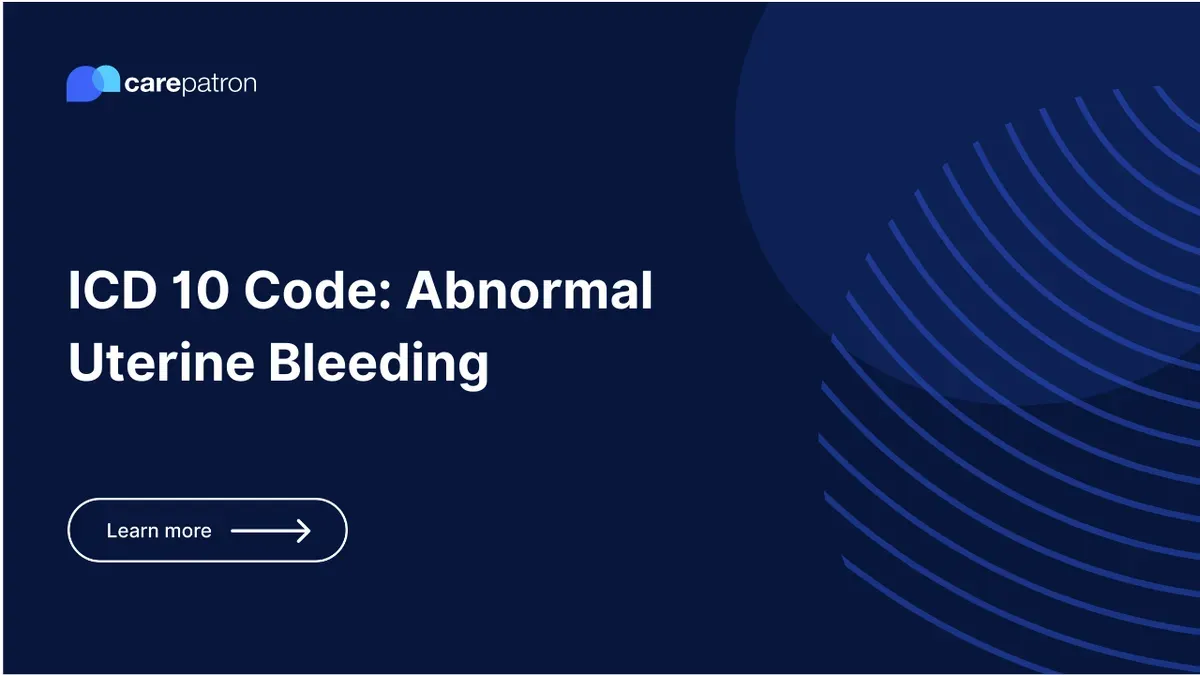
Abnormal Uterine Bleeding ICD-10-CM Codes
Read this short guide and learn about abnormal uterine bleeding ICD codes you can use.
Use Code
Commonly asked questions
No. N93 - Other abnormal uterine and vaginal bleeding is not valid and not billable.
Yes. These are only meant to be used on female patients.
Pregnancy tests, blood tests, thyroid tests, hormone levels tests, hysteroscopic exams, pelvic ultrasounds, and endometrium biopsies.
EHR and practice management software
Get started for free
*No credit card required
Free
$0/usd
Unlimited clients
Telehealth
1GB of storage
Client portal text
Automated billing and online payments
